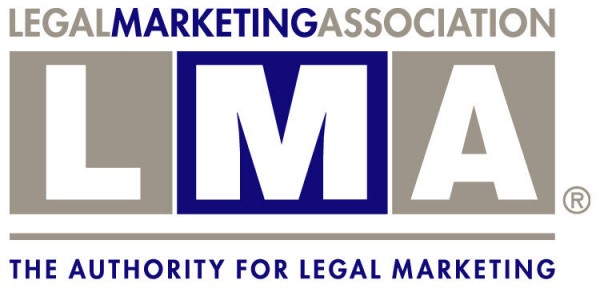To print this article, all you need is to be registered or login on Mondaq.com.
Key Takeaways:
- The Delaware Court of Chancery (the
“Court“), through its decision in
Moelis1, has invalidated certain stockholder
agreement provisions that circumvent the role of the board of
directors (the “Board“) and its ability to
exercise control pursuant to Section 141(a)2 of the
Delaware General Corporation Law (the
“DGCL“). - Existing stockholder agreements limiting the powers of the
board could be held invalid pursuant to Section 141(a) of the DGCL
to the extent that such agreements limit the control and powers of
the board. - The ruling in Moelis implies that certain negative
covenants related to boards of directors should appear in the
company’s certificate of incorporation instead of in
stockholder agreements to be enforceable. - The Court’s decision only applies to corporations and does
not extend to limited liability companies and limited
partnerships.
On February 23, 2024, the Court issued an opinion3
invalidating certain provisions of a stockholder agreement, which,
in part, contractually constrain the Board’s discretion to
exercise control over the business and affairs of the company. In
its analysis, the Court used a test formulated in
Abercrombie4 to determine the legality of a
stockholder agreement’s provision. Accordingly, to determine
the validity of a provision, one must first evaluate whether a
subject provision falls into the realm of an internal governance
arrangement as contemplated in Section 141(a) of the DGCL. Second,
if the provision is part of an internal governance arrangement, the
Court must determine whether the challenged provision effectively
removes the board in a “very substantial way from their duties
to use their best judgement on corporate
matters.”5
Drawing off the facts of the case, the Court specifically stated
that certain provisions of a stockholder agreement were facially
invalid. Such provisions relate to “Pre-Approval
Requirements,” “Board Composition Provisions,” and
“Committee Representation Provisions,” which are
described in more detail below. In Moelis, the Court
reasoned as follows:
- “Pre-Approval Requirements” – Under
the terms of the company’s stockholder agreement, the Board
required prior written consent from the stockholder before taking
certain actions, which among other matters, included the issuance
of equity, removal and appointment of officers, and incurrence of
debt. The Court did not consider “whether some lesser
combination of rights might pass muster” because these
stockholder pre-approval requirements “encompass virtually
everything the Board can do,”6 and effectively
removed the power of a company’s Board. - “Board Composition Provisions” – The
Court additionally held that certain Board composition provisions
were facially invalid. First, the Court invalidated a provision
that required the Board to fill a vacancy created by a departing
stockholder-designated Board member to be filled with another
stockholder designee. The second provision improperly compelled the
Board to recommend a stockholder’s designee for Board election.
Third, the Court invalidated a provision preventing the Board from
increasing the number of board seats beyond a certain amount unless
the stockholder provides prior consent, which was counter to the
company’s certificate of incorporation and bylaws. Notably, the
Court stated that (i) a stockholder can (x) “identify a number
of candidates for director equal to a majority of the
Board”7 and “identify a number of [Board]
candidates”8, and (y) require the Board to nominate
a stockholder’s designee9, and (ii) a company can
agree to “facilitate the election and continued service of
[stockholder’s] designees” as such efforts could be
ministerial in nature.10 - “Committee Representation Provisions“
– Lastly, the Court considered a right that forced the Board
to “populate any committee with a number of Moelis’
designees proportionate to the number of designees on the full
Board.”11 The determination of a committee’s
composition is within the Board’s authority. Removing that
authority is in direct violation of Sections 141(a) and 141(c) of
the DGCL.
In delivering its opinion, the Court discussed the methods a
company could use to implement facially invalidated provisions. The
Court stated that a such company could accomplish the same ends by
including language within its certificate of incorporation.
Additionally, a corporation could issue a new series of preferred
stock carrying a set of voting and appointment rights similar to
those refuted by the Court; “it could consist of a single
golden share.”12
It remains to be seen if the Moelis decision will be
appealed in the future or how the court will view stockholder
agreements and their provisions going forward. However, a company
should carefully consider the arrangements related to the decision
making of its board of directors as this decision opens the door to
legal challenges. At its core, the Moelis decision is a
reminder that the powers of the board of directors as to the
governance of the company are set forth in the DGCL. This ruling
emphasizes the importance of Section 141(a) of the DGCL and, in its
wake, Delaware corporations should be careful to not run afoul of
its core principle that a corporation “shall be managed by or
under the direction of a board of directors, except as [] provided
[ ] in its certificate of incorporation.” As a practice point,
the powers of the board of directors cannot be restricted other
than through the provisions in the certificate of incorporation,
which may provide exceptions to the board’s management
authority. Thus, companies should consider incorporating relevant
provisions from their stockholder agreements into their certificate
of incorporation where applicable. However, companies should not
expect that all provisions lifted from stockholder agreements and
placed in the certificate of incorporation would automatically
become enforceable (for example to the extent such provision would
be in violation of the DGCL). It further remains to be seen how
subsequent case law, legal commentary and actions by the Delaware
courts to amend the DGCL (if any) will clarify this situation at
hand.
Footnotes
1. West Palm Beach Firefighters’ Pension Fund v.
Moelis & Company, C.A. No. 2021-0309-JTL (Del. Ch. Feb.
23, 2024).
2. DGCL Section 141(a) provides that “the business
and affairs of every corporation organized under this chapter shall
be managed by or under the direction of a board of directors,
except as may be otherwise provided in this chapter or in its
certificate of incorporation.”
3. West Palm Beach Firefighters’ Pension
Fund, C.A. No. 2021-0309-JTL.
4. Abercrombie, et al. v. Davies et al., 35 Del.
Ch. 599, 611, 123 A.2d 893, 899 (Del. Ch. 1956).
5. Id. at 611.
6. Id. at 4.
7. Id. at 11.
8. Id. at 11. The Court states that “What
the Board or the Company does with those candidates is what
matters.”
9. Id. at 11. This is distinguished from a
requirement causing the Board to support a nominated
candidate.
10. Id. at 121.
11. Id. at 5.
12. Id. at 13.
The content of this article is intended to provide a general
guide to the subject matter. Specialist advice should be sought
about your specific circumstances.
POPULAR ARTICLES ON: Corporate/Commercial Law from United States
#Delaware #Court #Chancery #Invalidates #Rights #Stockholder #Agreement #Sidelining #Board #Directors #Directors #Officers











